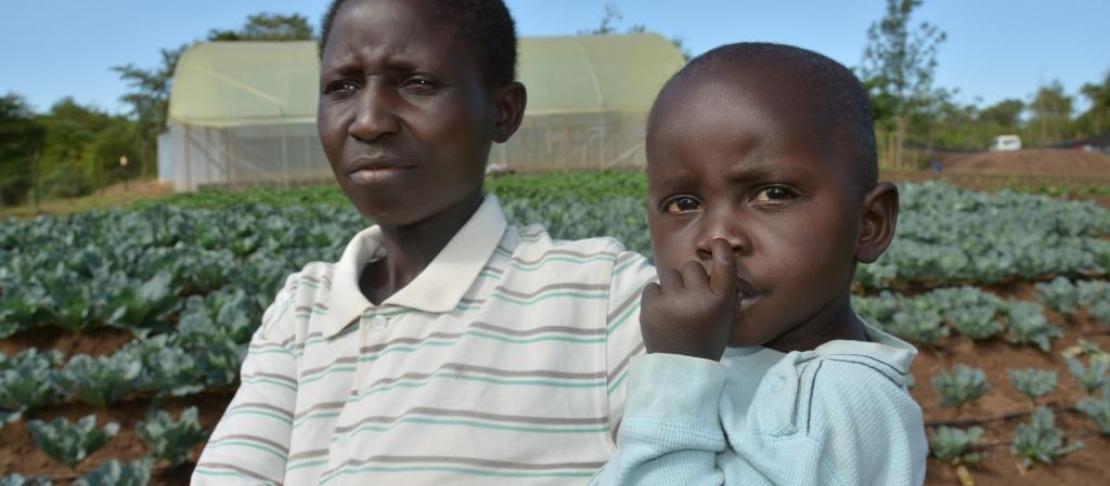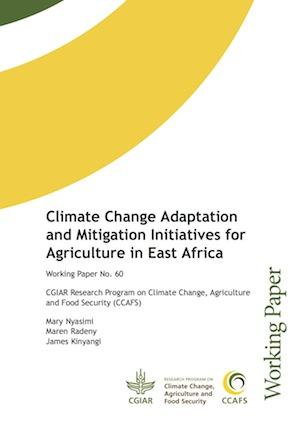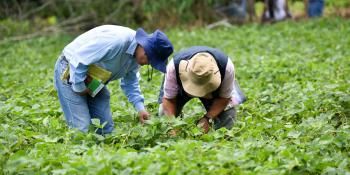Climate change adaptation and mitigation initiatives for agriculture in East Africa

A new working paper provides understanding of the current state of national climate change adaptation and mitigation efforts in Ethiopia, Kenya, Tanzania and Uganda for agriculture and provides baseline information for subsequent assessments of climate change adaptation and mitigation.
National governments across East Africa are in the process of formulating and implementing adaptation and mitigation strategies to help farmers cope with climate change. These include formulating actions, frameworks and programs to address climate change and embedding these within the long-term national development plans. This working paper provides understanding of the current state of national climate change adaptation and mitigation efforts in Ethiopia, Kenya, Tanzania and Uganda for agriculture and provides baseline information for subsequent assessments of climate change adaptation and mitigation.
In each country, specific government departments such as Environmental Protection Authority (Ethiopia), Ministry of Environment, Water and Mineral Resources (Kenya), Vice President‘s Office (Tanzania) and Ministry of Water and Environment (Uganda) are mandated to coordinate climate change initiatives. In all countries, the Ministry of Agriculture is the focal point for all climate change initiatives related to agriculture. Agricultural Sector Development Plans that provide strategies to boost agricultural productivity and spur economic growth have been prepared either as standalone plans or as part of National Development Plans (NDP). Irrigation, capacity building, enhancing private-public partnership for market development, and creating legal and regulatory environment that can attract investments are some of the priority areas identified for attention in agriculture to enhance climate resilience.
All countries have submitted draft National Adaptation Plan of Actions (NAPAs) and Nationally Appropriate Mitigation Actions (NAMAs) to UNFCCC, indicating priority interventions. Due to ineligibility to UNFCCC funding, Kenya initiated the National Climate Change Response Strategy (NCCRS) and prepared a detailed National Climate Change Adaptation Plan (NCCAP) that identified priority immediate, medium and long-term adaptation strategies in agriculture and other sectors.

access this working paper here
Government research institutions are equally actively involved. The Kenya Agricultural Research Institute and Uganda Ministry of Water and environment have established Climate Change Units, while the Ethiopian Institute of Agricultural Research is taking pivotal role in developing livestock and crop programs geared towards contributing to a Climate Resilient Green Economy. Other initiatives include enhancing capacity of researchers and professionals in climate change in East Africa, where training is offered by universities as part of their curriculum and short courses in selected research institutions. However, the effectiveness of these initiatives is hampered by lack of a clearly defined strategy and national policy. In addition, there is lack of documentation of completed and on-going projects thus making it difficult to coordinate initiatives and avoid duplications.
To fund climate change initiatives in agriculture, all governments across the region are sourcing financing from various sources (other governments, foundations and research and development organizations). However, Kenya also seeks financing from local sources within the country such as the Local Authority Transfer Fund (LATF) and the Constituency Development Fund (CDF).
Access the Working Paper 60: Climate Change Adaptation and Mitigation Initiatives for Agriculture in East Africa
Mary Nyasimi, Maren Radeny and James Kinyangi work for CCAFS East Africa. Mary Nyasimi is a Program Specialist, Maren Radeny is a Science Officer while James Kinyangi is the Regional Program Leader.



